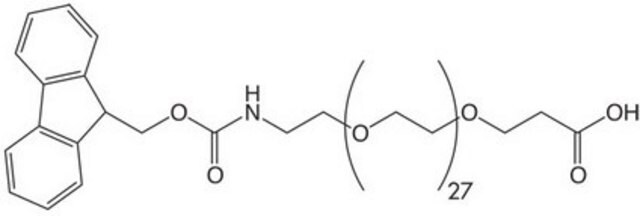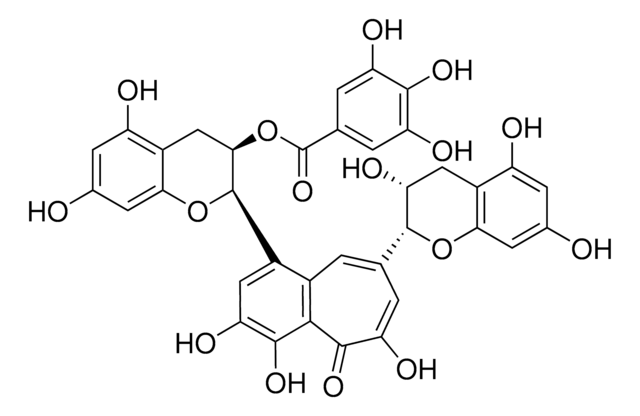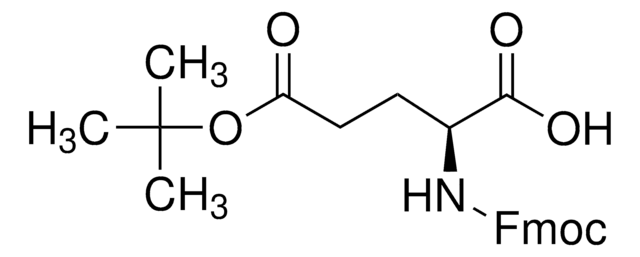QBD10273
Fmoc-N-amido-dPEG®8-acid
>95% (HPLC)
Synonyme(s) :
Fmoc-N-amido-PEG8-COOH, Fmoc-N-amido-PEG8-acid, Fmoc-NH-PEG8-acid, Fmoc-PEG-acid
About This Item
Produits recommandés
Essai
>95% (HPLC)
Forme
solid or viscous liquid
Capacité de réaction
reaction type: Pegylations
Architecture des polymères
shape: linear
functionality: heterobifunctional
Conditions d'expédition
ambient
Température de stockage
−20°C
Chaîne SMILES
N(CCOCCOCCOCCOCCOCCOCCOCCOCCC(=O)O)C(=O)OCC1c2c(cccc2)c3c1cccc3
Clé InChI
VYXGUCLTEWCVRY-UHFFFAOYSA-N
Caractéristiques et avantages
Informations légales
Code de la classe de stockage
11 - Combustible Solids
Classe de danger pour l'eau (WGK)
WGK 3
Point d'éclair (°F)
Not applicable
Point d'éclair (°C)
Not applicable
Faites votre choix parmi les versions les plus récentes :
Certificats d'analyse (COA)
It looks like we've run into a problem, but you can still download Certificates of Analysis from our Documents section.
Si vous avez besoin d'assistance, veuillez contacter Service Clients
Déjà en possession de ce produit ?
Retrouvez la documentation relative aux produits que vous avez récemment achetés dans la Bibliothèque de documents.
Global Trade Item Number
| Référence | GTIN |
|---|---|
| QBD10273-100MG | 4061842703197 |
Notre équipe de scientifiques dispose d'une expérience dans tous les secteurs de la recherche, notamment en sciences de la vie, science des matériaux, synthèse chimique, chromatographie, analyse et dans de nombreux autres domaines..
Contacter notre Service technique








